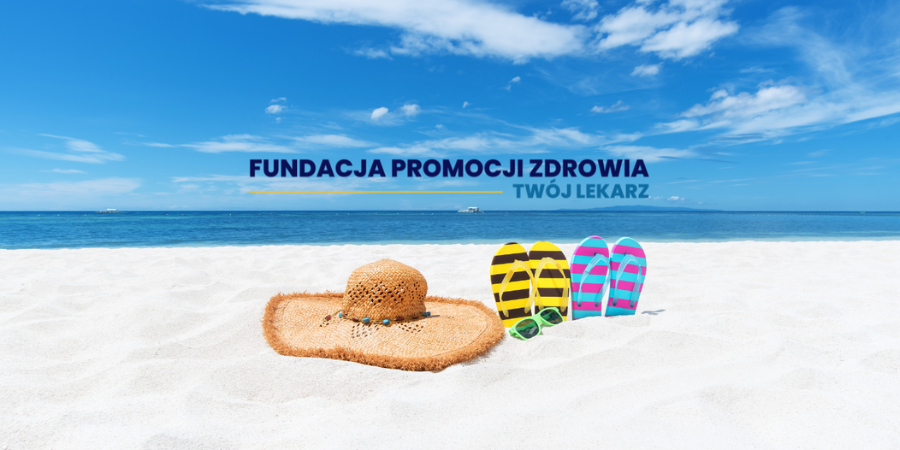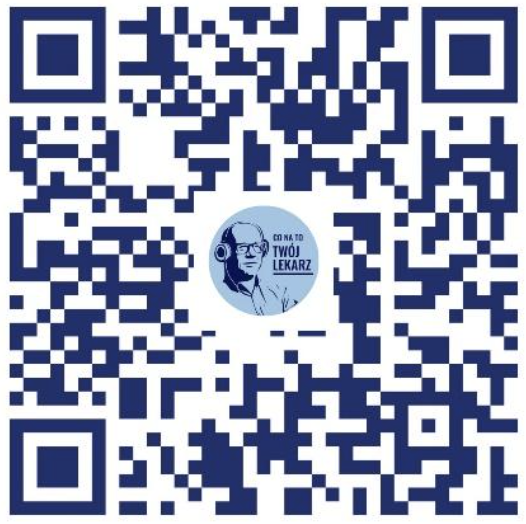



TAKE YOUR HEALTH ON HOLIDAY
8 Jul 2024
This is the second edition of the educational campaign initiated by the Health Promotion Foundation – Your Doctor. Access to reliable knowledge combined with practical advice from doctors guarantees that in a crisis situation we will behave appropriately, and health problems will not be the only memory of a dream vacation trip.
Summer is a time of carefreeness, adventures and discovering new places, but unfortunately, it is also a time when the risk of various types of injuries and contusions increases. Cycling trips, hiking or beach madness can end with a fall, cut or sprain. The most important thing is not to panic in such situations and to know the basic principles of first aid. In addition to not too heavy luggage and a large dose of good humor, it is worth taking practical advice on how to deal with the most common holiday injuries on your long-awaited vacation. This will make your summer adventures safer.
HOW TO DEAL WITH INJURIES?
Holiday injuries can happen to anyone, from cyclists to beachgoers. When an accident occurs, the most important thing is to stay calm and remember the ABC rule: A – Airway, B – Breathing, C – Circulation. First, make sure the injured person is breathing and there is no major bleeding. If the wound is serious, call for medical help immediately. In the meantime, stop the bleeding by pressing on the wound with a clean cloth. Dr. Adam Kuźmiński advises: "In emergencies, the most important thing is to stay cool. Remember that every second can be worth its weight in gold."
WOUNDS AND ABRASIONS – HOW TO TREAT?
Cuts and abrasions are some of the most common injuries during the holidays. A key step is to thoroughly clean the wound with running water and soap to remove dirt and bacteria.Let's not be afraid of water, even in the case of a bleeding wound. Running water is our ally in cleaning wounds" – convinces Dr. Kuźmiński. After thorough washing, the wound should be dried and disinfected with an appropriate preparation. It is important to monitor the condition of the wound – if it is deep or does not heal properly, a visit to the doctor will be necessary.
SPRAYS AND DISLOCATIONS – WHAT TO DO?
Sprains and dislocations are common injuries, especially during outdoor physical activity. In the event of a sprain, it is important to immobilize the joint and apply cold compresses to reduce pain and swelling. If you suspect a fracture or the injury is serious, you will need immediate medical attention. Remember to avoid movement of the injured joint and not put weight on it. "Sprains may seem trivial, but improper treatment can lead to serious complications" – warns the surgeon.
BURNS – QUICK RESPONSE IS ESSENTIAL
Sunburns are common during the summer. The best way to deal with them is to cool your skin with lukewarm water for at least 15 minutes. "Cooling burns is key. The sooner we do it, the less damage there will be" – explains Dr. Adam Kuźmiński. If they have formed, avoid popping the blisters unless a cloudy liquid appears in them, which may indicate an infection. Remember to always use creams with a high UV filter. Avoid direct sunbathing during the hours of the greatest sunlight.
BITES AND STINGS – HOW TO REACT?
Insect bites or stings can be not only painful but also dangerous. In the case of a bee sting, remove the stinger and disinfect the wound. Observe for symptoms of an allergic reaction, such as swelling, shortness of breath or dizziness - in such a case, call for medical help immediately. It is always worth having an antihistamine and adrenaline kit with you, especially if you know that you are prone to allergies. "Allergic reactions can be very serious. If you have adrenaline on you, don't hesitate to use it" – emphasizes Dr. Kuźmiński.
TICK PROTECTION – DON'T FORGET ABOUT PREVENTIVE MEASURES
Ticks can carry serious diseases, such as Lyme disease. To protect yourself, wear long clothes when walking in the woods and use insect repellent. After returning from a trip, carefully inspect your body and clothes. If you find a tick, remove it with tweezers and observe the bite site. If you notice characteristic redness or other worrying symptoms, contact your doctor. Remember that early detection and treatment of Lyme disease significantly reduces the risk of complications.
HOLIDAY MUST HAVE
- First aid kit – always carry a well-stocked first aid kit, including bandages, disinfectant, plasters, scissors and painkillers.
- Sun protection – use creams with a high UV filter, avoid sunbathing during peak sunlight hours.
- Cooling burns – cool burns as quickly as possible with lukewarm water to limit the effects of high temperatures.
- Antihistamine and adrenaline kit – carry antihistamines and an adrenaline pen if you are allergic to insect bites.
- Appropriate clothing – wear long sleeves and pants in areas where ticks may be present.
- Regularly check your body – after each trip to the forest, carefully check your body for the presence of ticks.
- Beware of wild animals – avoid direct contact with wild animals to prevent bites and stings.
We encourage you to listen to podcasts WHAT DOES YOUR DOCTOR SAY?, in which Dr. Adam Kuźmiński shares his knowledge and experience in the field of first aid and treatment of injuries. The podcasts are part of an educational campaign TAKE YOUR HEALTH ON HOLIDAY initiated by the Health Promotion Foundation and NZOZ Your Doctor.


Who we are
In our work, we are guided by the idea of a family doctor who provides the patient with comprehensive care at all times, not only when they are ill. Our mission is to take care of the health of residents on a daily basis. We provide health education and promote prevention.
Copyright © Wrocław 2021 NZOZ Your Doctor Sp. z o. o. All Rights Reserved.
Website created by KomuKoncept: www.komukoncept.pl






